Becoming obsessed with safety in INFRA
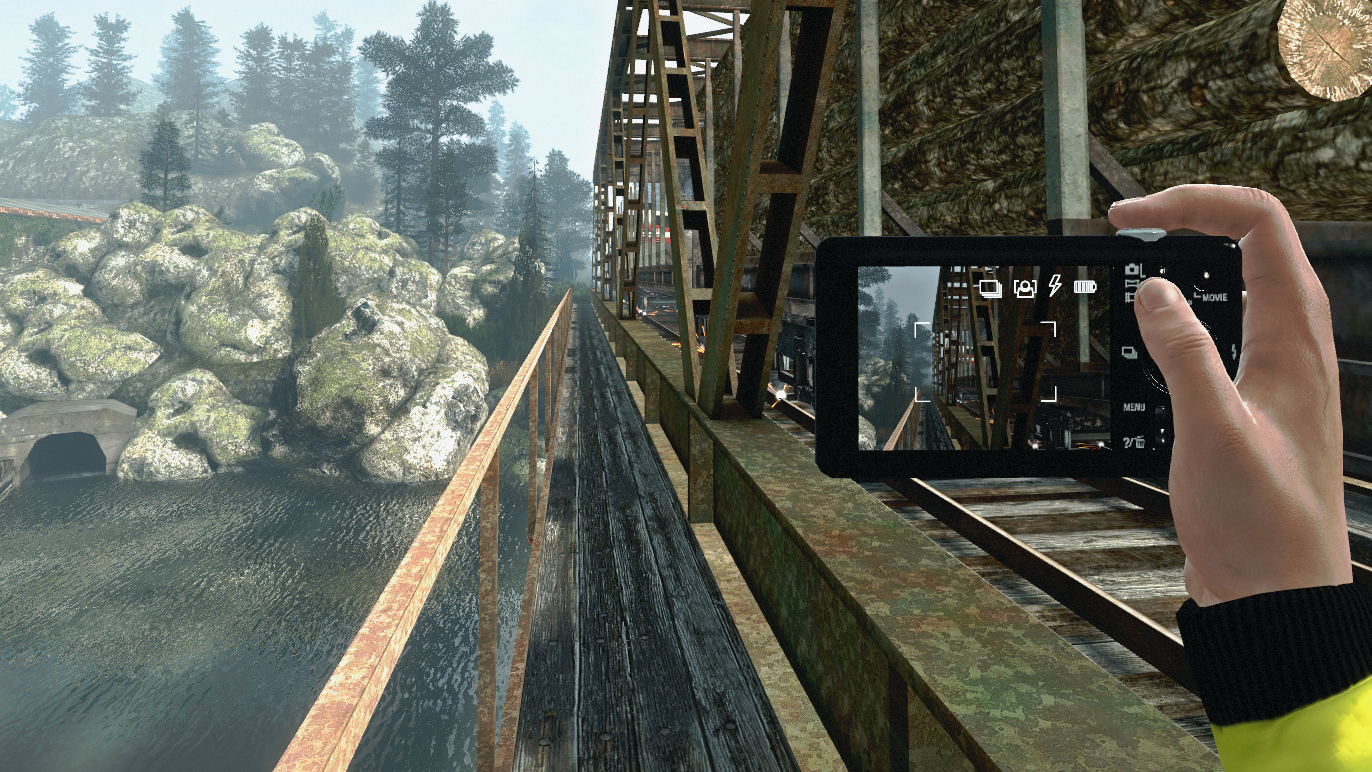
Give me a camera in a game—a camera my character can hold and snap pictures with—and I'm weirdly excited. I'm not sure why. I like framing and taking screenshots, but if I can actually hold a camera inside a game, point it at things, and snap pictures, I'm ridiculously happy about it.
INFRA, a first-person exploration and puzzle-solving game, casts you as a structural analyst sent to survey a series of abandoned and decaying industrial buildings: power plants, hydroelectric dams, and other facilities. While you're there, you have to solve environmental puzzles—how to open gates, restore power to machinery, and so on—and uncover the game's central mystery. You're also supposed to photograph structural hazards. This last part became my obsession.
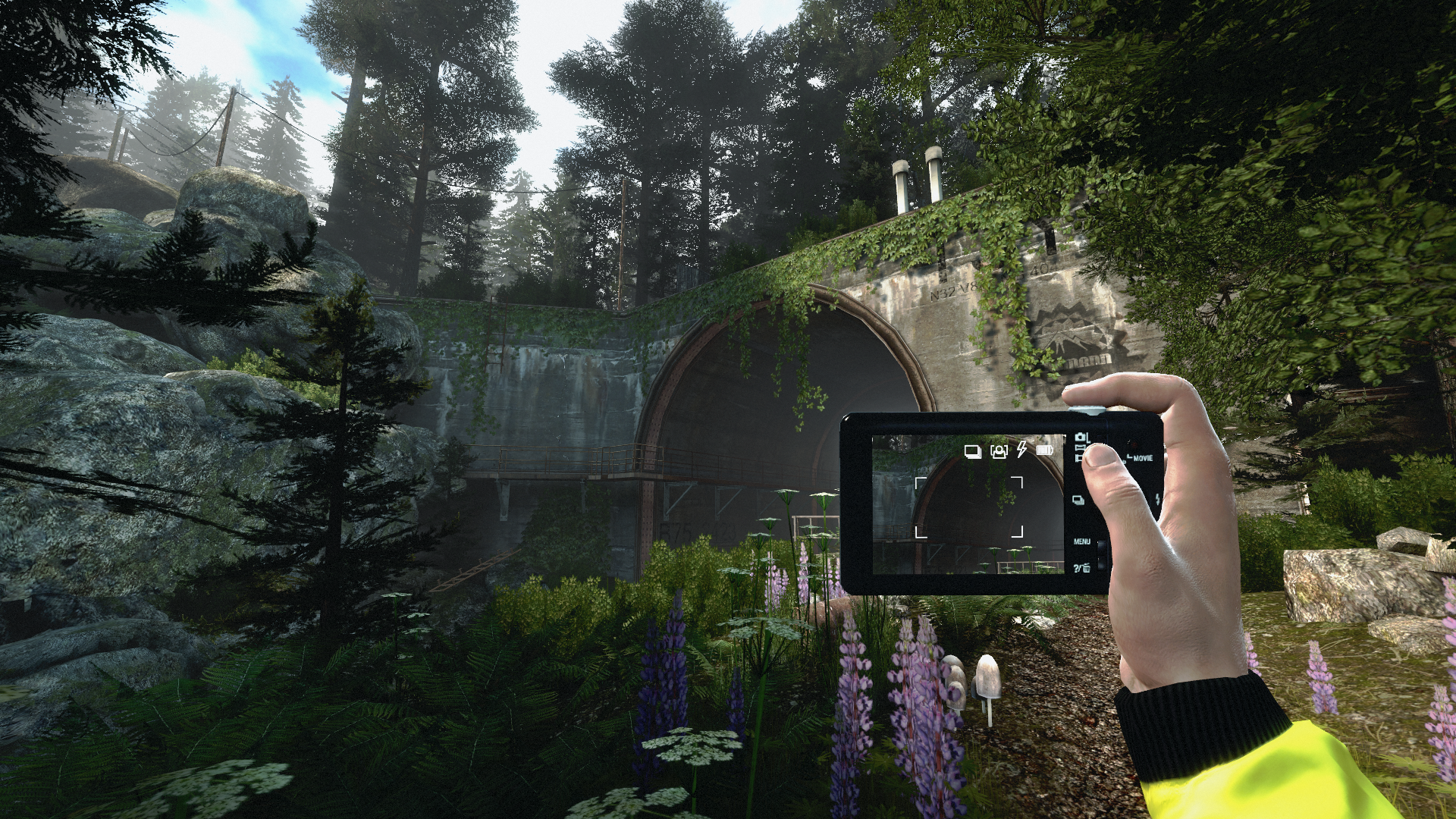
I found the camera to be both a good and bad thing. Good in that it's fun to use, especially if you share my weird enjoyment of in-game cameras, but bad for a couple of reasons. First, the camera's battery life is ridiculously poor. This isn't unique to INFRA: tons of games make finding replacement batteries for devices a thing you have to do, especially for flashlights (INFRA also has a flashlight, and its batteries die quickly as well). The second camera problem developed (ha ha) after I'd been playing for a little while.
When I arrived at the site, I immediately noticed something that looked structurally unsound: some floating doors and windows that (I assume) were a glitch. I dutifully took a picture. I'm a structural analyst, mind you, not a structural theorist, but I have to assume impossible structures might pose a safety risk even for those bound by the laws of physics and mass.
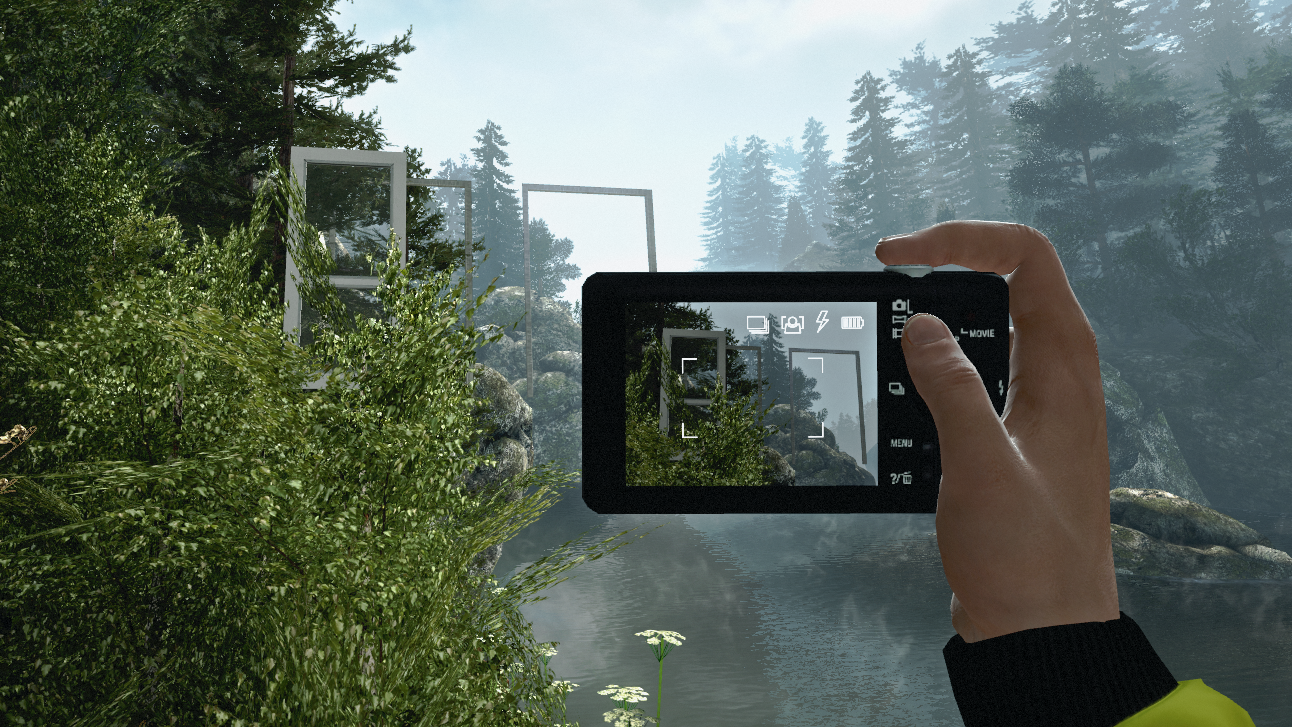
I began walking around, exploring the terrain, looking inside power plants, dams, and other structures, and solving the occasional puzzle. I quickly found, however, that I wanted to my job—that of a structural analyst—more than I wanted to solve puzzles or investigate a mystery. Yes, I found some suspicious documents and figured out how to power up a generator to allow me to open a door... but what I really wanted to do was photograph safety issues. All the safety issues. Screw mysteries, I wanted to tally up infractions and write a detailed report and issue fines. That's what putting a camera in my hand does to me. It makes me want to do my job. If a ghost had floated out of a service tunnel, I'd probably only have photographed it if it hadn't been wearing a hard hat. Safety first!
I started taking pictures of anything that looked like a problem. A board missing from a bridge? A broken catwalk? Click. Unfortunately, not only is the camera's crummy battery not up to the task, but the game didn't care about these minor safety issues as much as I did. Take a picture of a major problem and it lets you know you've done something right. A broken railing or a shoddy-looking walkway? It doesn't seem to care.
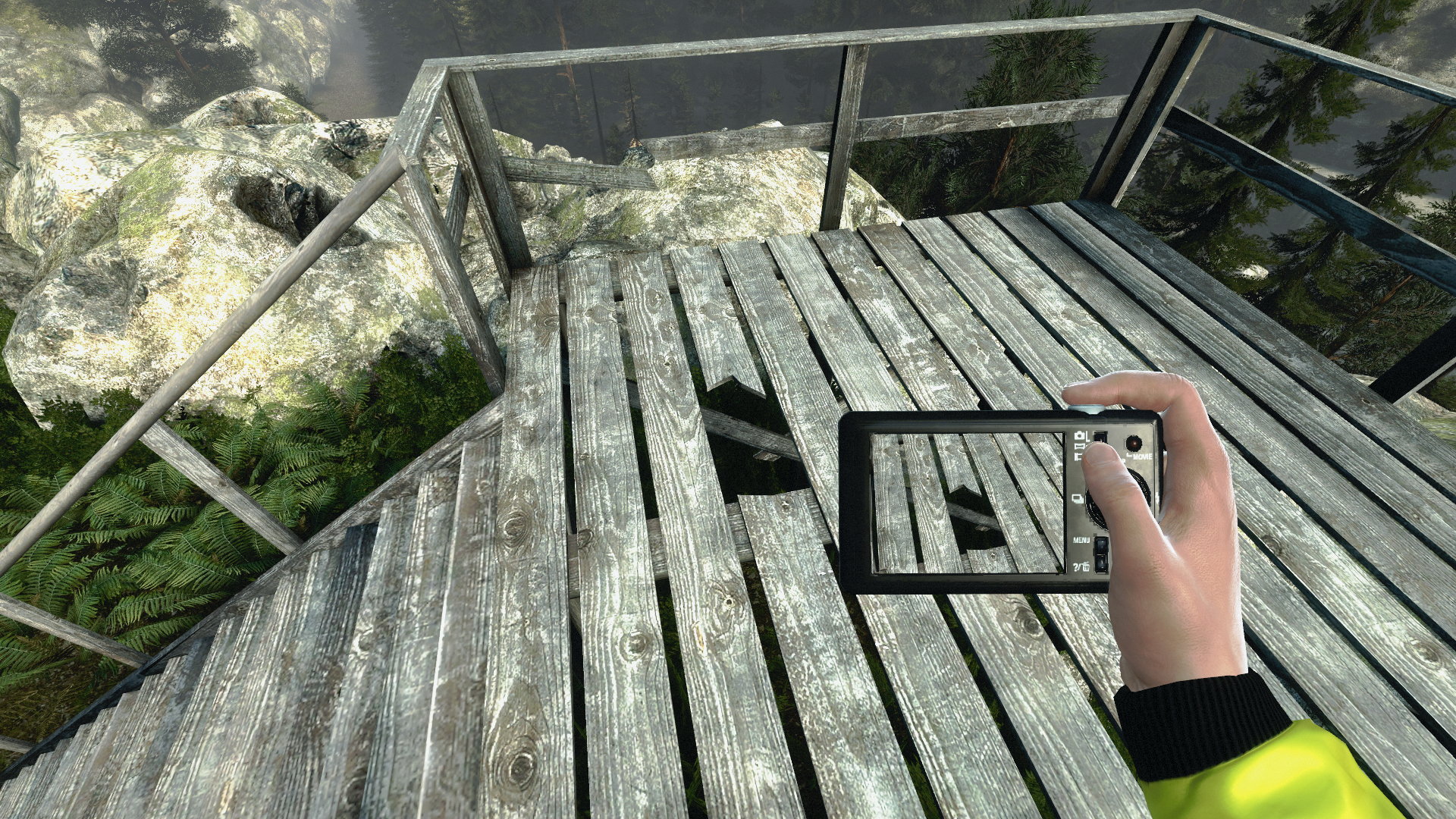
So, even though I couldn't document all the various structural issues I discovered, I decided to keep a mental note while I played. At one location I came across a corpse under a blanket. I couldn't do anything about it—I wasn't given the option to use my mobile phone to report this rotting corpse. I couldn't even take a picture of it because my battery had died, but you'll be happy to know I did test the structural integrity of the corpse by standing on it while I searched the room for batteries.
Keep up to date with the most important stories and the best deals, as picked by the PC Gamer team.
While looking for keys to unlock a gate, I had to break into a building by climbing a ladder onto a roof (that's not safe if someone else isn't holding it for you), jumping down to a balcony I wasn't sure could support my weight (structurally unsafe!), and crab-walking through a dirty attic (if not unsafe, at least unhygienic). As for some of the buildings themselves, I found them unsafe by their very design. There were flood doors that could only be operated by solving a switch puzzle. Surely, if a dam is experiencing an emergency, forcing the operator to solve a puzzle to shut a flood gate or power down a generator seems highly unsafe. It'll be fully detailed in my report.
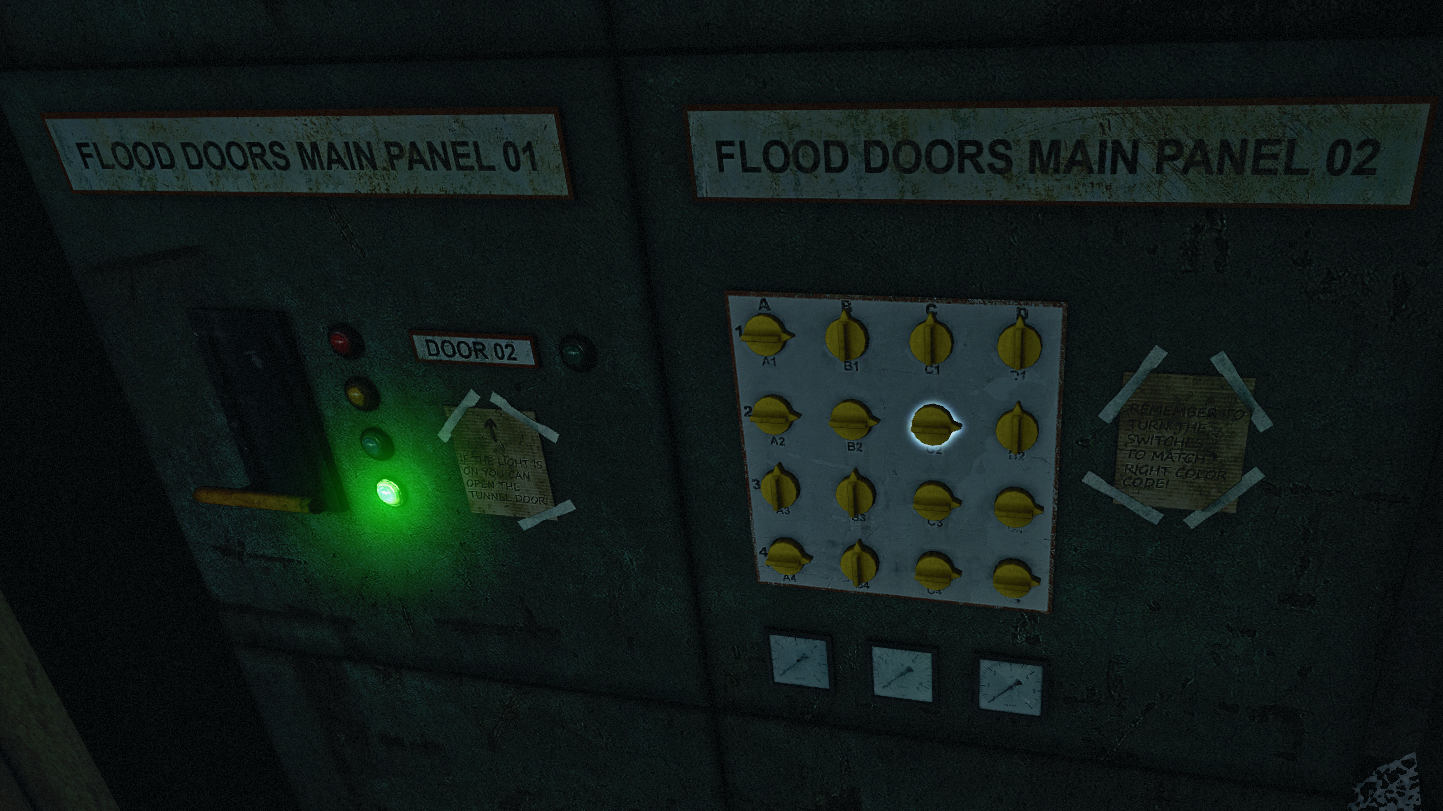
The biggest safety issue was when I had to power up an entire dam so I could open an electric door lock at the other end. The floor was covered with water, and the power cables were submerged. This ain't my first rodeo: in other games I know finding a power generator means you have to turn it on, and that electrified water can be crossed by hopping from object to object.
Typically, though, I do these things because I'm battling aliens or demons or something, and crossing a pool of electro-water is a matter of life and death. Here, it's just my job to note structural problems. I'm at work, not saving the universe. Should I really be powering up unattended machinery that's soaked in water and then hopping around like Mario? Unsafe!
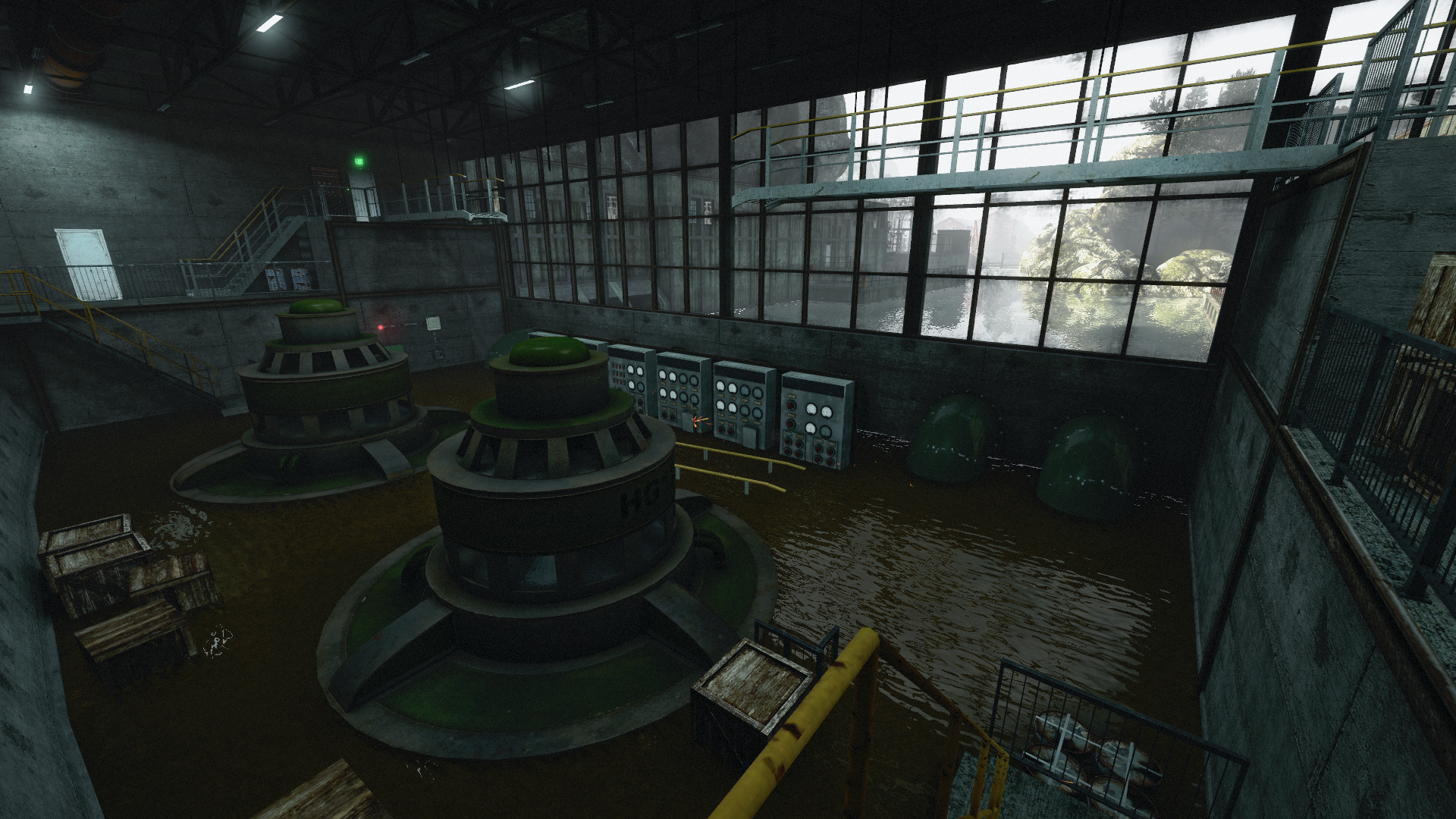
OK, so, maybe I took my job as an inspector a little too seriously. But that's what happens when you give me access to a camera and a highly specific job description.
I'm mostly enjoying INFRA, though. The environments, both interiors and exteriors, are both pretty nicely done, and the puzzles haven't been frustrating (though they haven't been necessarily that interesting, either). I'm happy to wander around abandoned buildings and landscapes, and there's a general linear progression that means you don't have to do too much backtracking. My biggest issue is that there are too many doors that simply can't be opened, there's not a lot of onscreen help when it comes to how the controls work, and that if you step into even a couple inches of water, you die. Hm. I might have to include that last one in my report.

Chris started playing PC games in the 1980s, started writing about them in the early 2000s, and (finally) started getting paid to write about them in the late 2000s. Following a few years as a regular freelancer, PC Gamer hired him in 2014, probably so he'd stop emailing them asking for more work. Chris has a love-hate relationship with survival games and an unhealthy fascination with the inner lives of NPCs. He's also a fan of offbeat simulation games, mods, and ignoring storylines in RPGs so he can make up his own.

